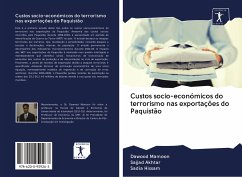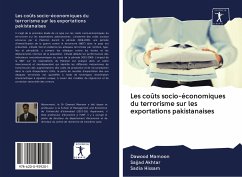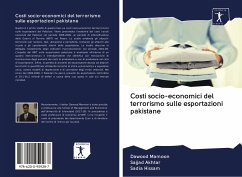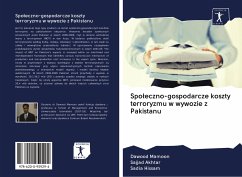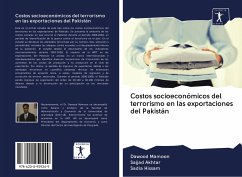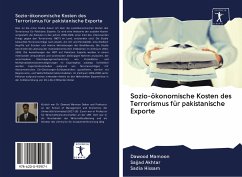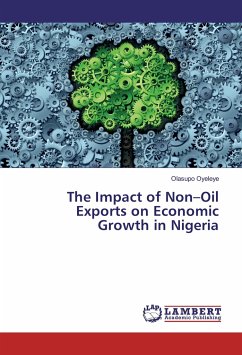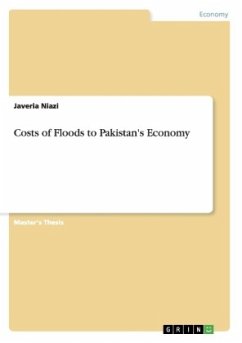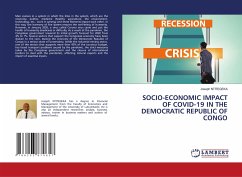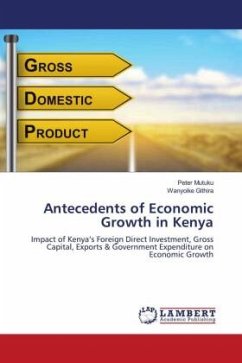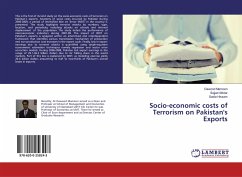
Socio-economic costs of Terrorism on Pakistan's Exports
Versandkostenfrei!
Versandfertig in 6-10 Tagen
17,99 €
inkl. MwSt.

PAYBACK Punkte
9 °P sammeln!
This is the first of its kind study on the socio-economic costs of terrorism on Pakistan's exports. Anatomy of social costs incurred by Pakistan during 2006-2009, a period of intensified War on Terror (WOT) in the country is presented. The study highlights terrorist attacks by numbers, type, location, and periodicity, including attacks on schools and internal displacement of the population. The study details the performance of macroeconomic indicators during 2001-09. The impact of WOT on Pakistan's exports is analyzed within an interlinked and interdependent framework that identifies various t...
This is the first of its kind study on the socio-economic costs of terrorism on Pakistan's exports. Anatomy of social costs incurred by Pakistan during 2006-2009, a period of intensified War on Terror (WOT) in the country is presented. The study highlights terrorist attacks by numbers, type, location, and periodicity, including attacks on schools and internal displacement of the population. The study details the performance of macroeconomic indicators during 2001-09. The impact of WOT on Pakistan's exports is analyzed within an interlinked and interdependent framework that identifies various transmission mechanism of production and non-production cost increases in the export cycle. Finally, loss in export earnings due to terrorist attacks is quantified using single-equation econometric estimation techniques namely regression and vector error correction models. During 2006-2008, Pakistan lost export earnings in the range of 29.1-36.2 billion dollars due to its' falling share in the world markets. Part of this loss is explained by WOT, as modeling exercise yields 20.4 billion dollars amounting to half to two-thirds of Pakistan's overall losses in exports.



